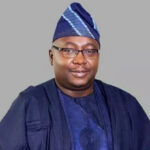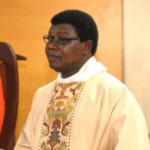
Democracy, which originated in Athens, Greece, is one of the ways we govern in our world of today. In addition to democracy, we have plutocracy, gerontocracy, aristocracy and others. Democracy is said to be the best system of government owing to its peculiar and sterling features. For example, the concept of the rule of law, which is enshrined in democracy, stipulates that everybody is equal before the law.
However, before African countries started practising democracy, they were under colonial rule for quite a long time. White people from France, Italy, Germany, Belgium, Britain, and Portugal carved up Africa into colonies and subjected the African peoples to colonial rule.
But African freedom fighters such as Nnamdi Azikiwe, Obafemi Awolowo, Leopold Senghor, Kwame Nkrumah, Agostinho Neto, Kenneth Kaunda, Julius Nyerere, Jomo Kenyetta, and Robert Mugabe, fought fiercely for the political emancipation of their countries. In the late 1960s, African countries started gaining political independence from their colonial masters. Ghana became a politically independent country in 1957 while Nigeria achieved independence on October 1, 1960.
Sadly, many African political leaders practised egregious variants of democracy. This resulted in the political implosion of some countries in Africa. Sudan and Ethiopia disintegrated, with other countries emerging from them. The promotion of ethnic chauvinism and practice of religious bigotry by leaders caused the failure of democracy in some African countries. Corrupt political leadership, indisputably, contributed significantly to the failure of democracy in most African countries, too.
In Nigeria, the civilian government of Alhaji Tafawa Balewa was overthrown six years after we had gained political independence. Later, there was a counter-coup, which snowballed into a civil war.
Before 1999, Nigeria, the so-called giant of Africa, had witnessed military interregnums at different periods in her chequered history. The military ruled our country between 1966 and 1979. And between 1983 and 1998, the soldiers ruled the country.
Although the military rulers we had branded their regimes as corrective, they fared worse than the civilian governments that preceded them. The military rulers put our constitution in abeyance, and ruled by decree. So while the Ibrahim Babangida regime institutionalised corruption in Nigeria, the late Gen. Sani Abacha, who had sanguinary proclivity, took much delight in killing democracy activists.
Muhammadu Buhari as Head of State trampled on our fundamental human rights while trying to reform Nigerians. Citizens who violated traffic rules and failed to stand in queue during official events were dehumanised. So the saying that the worst civilian government is better than the most benevolent military regime is true in the Nigerian case.
Unfortunately, there is recrudescence of military takeover in Mali, Burkina Faso, Guinea, Chad, Niger Republic and Gabon of recent. The reason for the failure of democracy in Africa is not far-fetched. African political leaders perceive that occupying the most exalted political office in their respective countries is an opportunity to amass stupendous wealth at the expense of their long-suffering fellow citizens. Being megalomaniacs, they trample on the fundamental human rights of the people and amend their countries’ constitutions to elongate their stay in office. Their attempts to perpetuate themselves in offices and the maladministration of their countries predispose them to becoming victims of military coups.
African leaders should be servant-leaders in their respective countries. And they should subsume their self-interests beneath the collective good of the people. Doing the aforementioned is the antidote to the wave of coups d’etat sweeping through the African continent.
Chiedu Okoye writes from Anambra State





